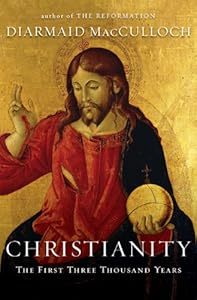
You can’t be a classical homeschooler and not teach dead languages. Or so it seems, the more one reads classical blogs, magazines, and advertisements.
I have always disagreed. Not only because I don’t know a second language fluently, dead or alive. But something has always rubbed me the wrong way about the entire notion.
My husband and I have discussed this at length, actually. Obviously, he is bilingual, and he is proof that learning another language – and culture – further broadens one’s outlook and opportunity.
But he has never been a fan of dead languages, either. This is something we can agree on.
See, to us, the language you choose to teach your children is more a philosophical and – dare I say it? – religious choice than a mere academic one. But I am very much in the minority here, particularly among classicists.
Last night, however, while researching something else entirely, I ran across this quote which startled me.
Eventually the Latin and Greek Churches became so identified with the Graeco-Roman world that within living memory in the Christian West, almost fifteen hundred years after the disappearance of the last Western Roman emperor, schoolboys and schoolgirls learned Latin as a necessary qualification for entry in any subject to two of England’s leading universities. The crucial stage in this extraordinary cultural saga was the reign of Constantine. The historian Eusebius of Caesarea so identified Constantine’s purposes with God’s purposes that he saw the Roman Empire as the culmination of history, the final stage before the end of the world. Gone was any expectation of a thousand-year rule of the saints, which he felt to be a deplorable falsehood associated with the Book of Revelation, which he mistrusted. But this Christian historian felt very differently about the nature of the empire from the great Latin historians of the past, such as Tacitus or Suetonius. The city of Rome meant little to him and he took a comparatively restrained interest in its history; the empire had become something greater, more universal in God’s plan.
– Diarmaid Macculloch in Christianity: The First Three Thousand Years, page 196.
Don’t misunderstand me: I don’t have any problem with those who wish their children to learn Latin and Greek. However, there are those of us who conscientiously educate our children in living languages and choose to teach a non-Roman-centric view of history.


[…] week, I dared challenge the necessity of teaching Latin to classical homeschoolers. It was a brief post, since I did not see the need to list a magnum opus […]